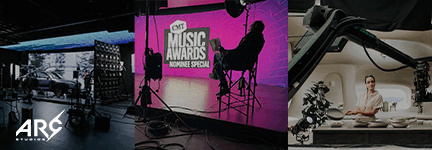
The Wayback VR Experience Triggers Beautiful Memories in Alzheimer’s Sufferers
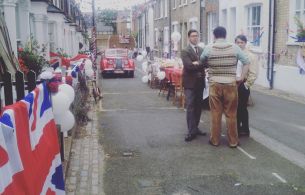
Earlier this year, we featured The Wayback, a virtual reality film which offers an immersive sensory experience aimed to trigger happy memories in people living with Dementia and Alzheimer’s. We’re happy to report that the passion project reached its £35,000 Kickstarter goal and last week the shoot took place in North London.
The chosen scenario was a quintessentially British one – a street party celebrating the coronation of Queen Elizabeth II in 1953. It’s an event that many elderly people experienced and the idea is that it will spark off memories from their youth.
Elisa Chami-Castaldi, strategic planner at Valenstein & Fatt (a.k.a Grey London) says, ‘We wanted to pick a pivotal moment in the UK's shared national consciousness that could trigger positive memories for people who lived in Britain, so the Queen’s coronation was the most fitting example possible. We researched as much about the details of that day as possible. The costume, the clothes, the hair, the makeup, the records. the food, everything.”
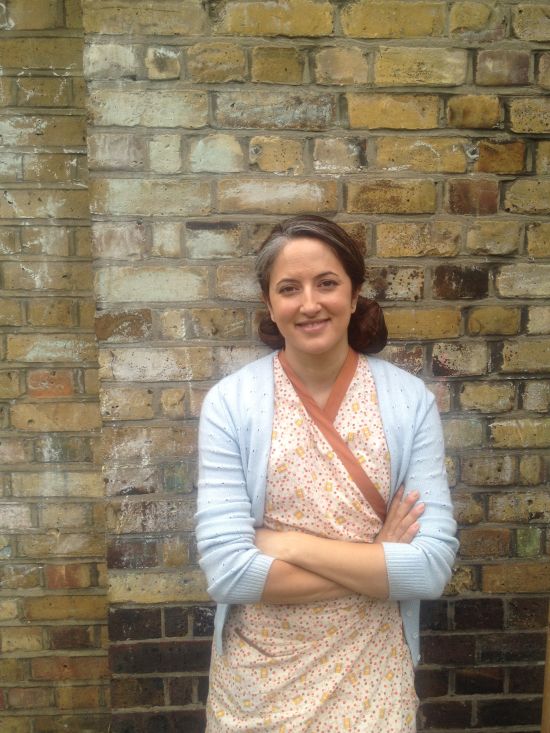
The Islington street chosen for the film remains basically unchanged since 1953. And for the shoot, it was filled with 1950’s memorabilia all carefully positioned to revive the nostalgic sights and sounds of those days. Union Jacks, home-made bunting and boxy vintage cars adorn the set. There are even old-school box TV’s in the living rooms of the houses, where the extras huddled around watching recordings of the coronation. One of the funnier elements of period-perfect details was a small child dressed as an ‘Oxo Cube’ – recreating the kind of home-made fancy dress of the times.
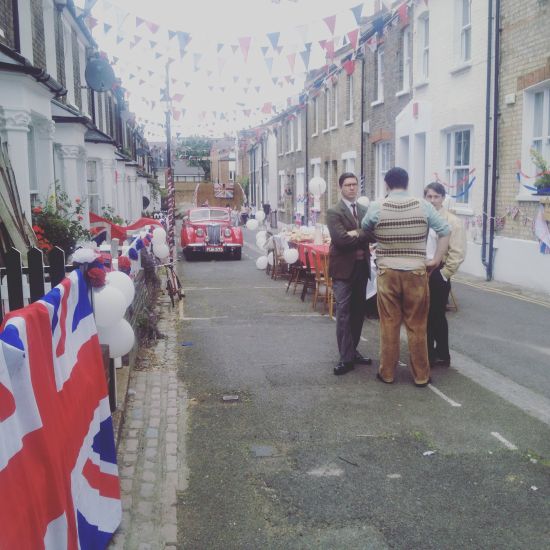
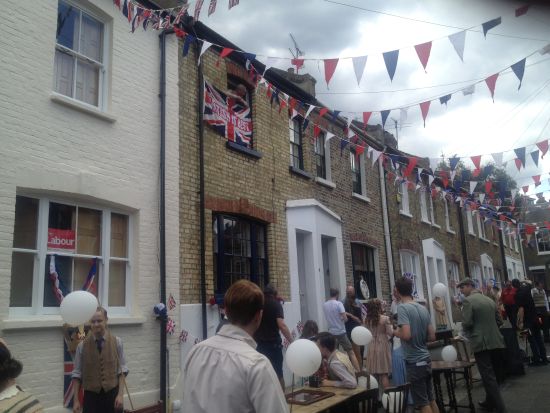
On set it was clear that the environment that the team have recreated is incredibly authentic.
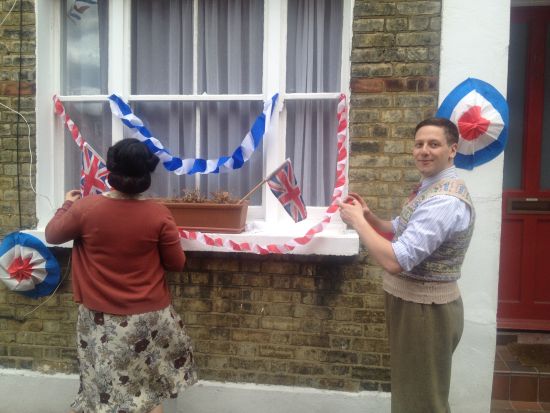
And for the team behind The Wayback, the experience on set was extra special. It has been a passion project for Grey creatives Dan Cole, Andy Garnett, Howard Green and strategic planner Elisa Chami-Castaldi, as well as the teams at Thomas Thomas Films and MPC, who have devoted free time, energy and expertise.
"Everybody on the team has, in some way, been touched by friends or loved ones with Alzheimer’s and Dementia and it was amazing to discover how many people it affects,” says Elisa by way of explanation for the incredible commitment displayed by all involved.
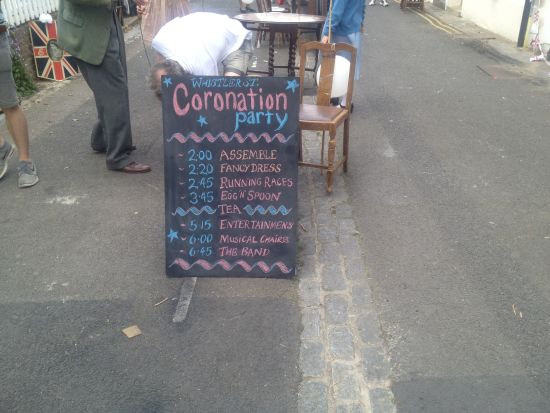
Indeed, according to official figures released by The Alzheimer’s Society, there are 850,000 people living with Dementia in the UK, with numbers set to rise to over one million by 2025. Disconcerting though these stats are, Elisa says that the increasing prevalence of the condition provided extra motivation for their team as it was clear that they would be able to help many people.
The widespread nature of the condition also became a deciding factor in the success of The Wayback’s Kickstarter funding. With just 30 days to raise the £35K budget they needed to make the VR film, the project’s message was well-received and was publicised across industry publications. The money raised was used to cover the hard costs of the shoot including sourcing the location and catering and some of the Kickstarter pledges even won the opportunity to be extras in the film. Once funding was acquired with the help of contacts in Dementia care and the ad industry the film went into production.
What makes the project all the more exciting is that it is backed by some fascinating research.
"Right at the start of the project, Dan and Andy reached out to Dr David Sheard, a well-respected professional in Dementia care. His view on improving quality of life of people living with Dementia is more to do with embracing the world in which they occupy. So, if they believe they are in a happy moment in 1960, let them, don't remind them that they are here in the present where the people they know and love aren’t here anymore,” says Elisa. She explains that Dr Sheard’s philosophy worked so well in alignment with the aim of The Wayback team.
The team visited a care home, armed with some Google Cardboards and other VR headsets in order to see how patients might respond to virtual reality. Would it all prove too much? Or would it bring their memories to life?
Elisa mentions one notable patient watching the safari video started to use the VR headset like binoculars as the video he saw reminded him of the time he saw elephants whilst on service in the army in Africa. It was instances like this that allowed The Wayback team to see the impact of their project as they saw VR was having such a positive effect on the patients at Huntington.
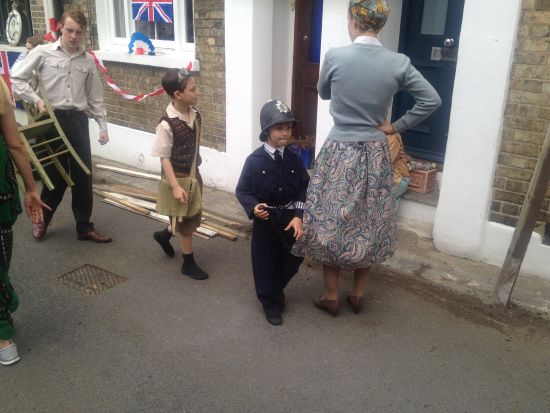
The research also informed the kind of experience the team chose to create. It was less of a narrative piece and more of an aesthetic smorgasbord, designed to trigger memories.
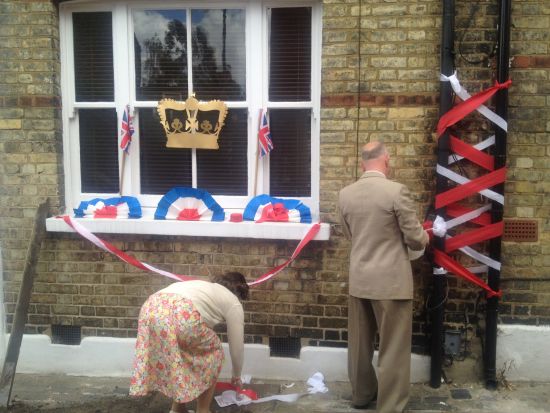
"It’s unlike a typical film where you have a grandiose storyline and a big story arch,” says Elisa. “We’re trying to immerse somebody who has Dementia within a world that will have a positive effect on them and evoke those memories. It’s more about immersing them in an environment and unlocking those mini micro moments”.
Looking forward, once this Coronation Day experience is out in the world, the team hope to follow up with new experiences of other universal moments.
'Although it started out as a personal project, many organisations have been massively supportive and that will obviously help us to get this first film made. Then depending on how we can amplify the good out of it, if we are able to get more funding and continue, Dan, Andy, I and the rest of the team would all love to start looking for more events from the past to trigger more amazing memories,” says Elisa.
What’s also been exciting and heartening has been the way that ad industry connections have been pivotal to putting together the project. There’s VR expertise and post production from MPC, editing by The Quarry and, of course, production power from Thomas Thomas Films. The sound design carries particular weight as the team believes it can be instrumental to evoking strong memories – and that will done by sound studio 750mph.
The Wayback makes its global debut on World Alzheimer's Day, September 21st 2017, and will be free to access on YouTube in VR enabled form.
For anybody seeking to know more about The Wayback, keep your eyes peeled for a documentary to be made by Greyworks.






